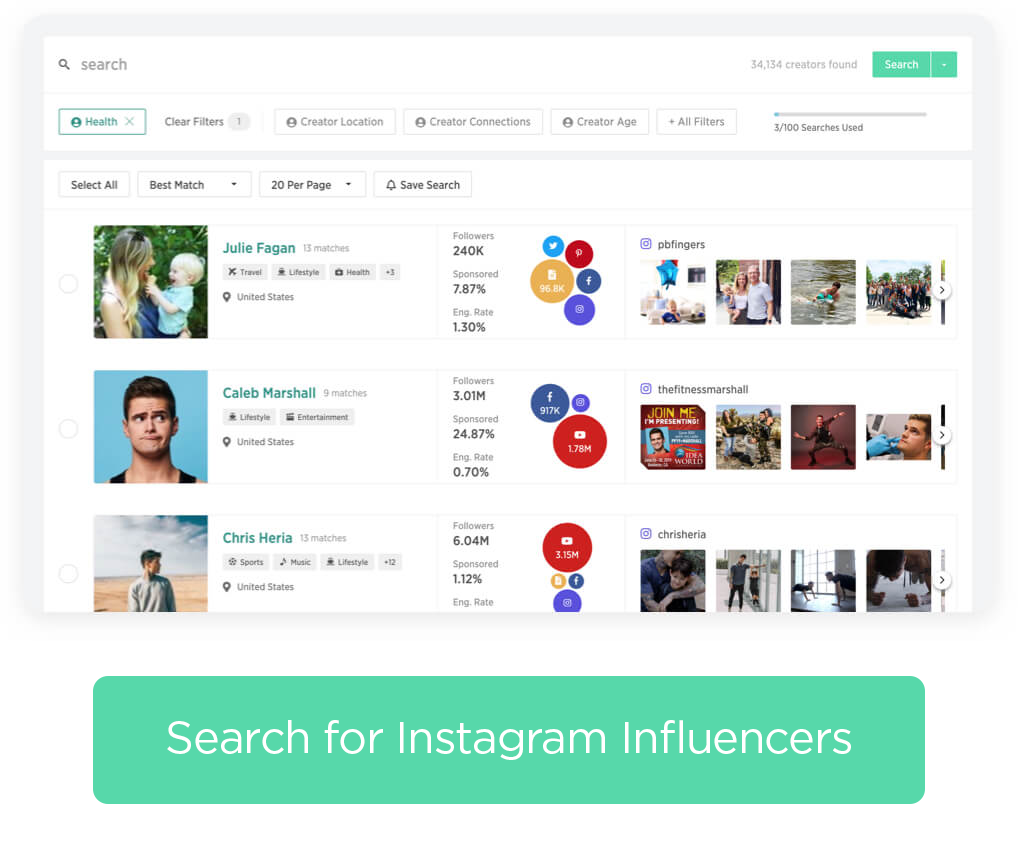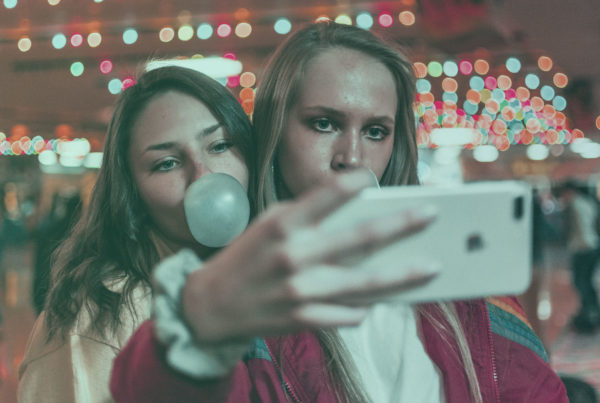There’s a lot of advice out there for brands looking to work with influencers, but influencers themselves often need some help too. Whether you’re just getting started or you want to take your influencer business to the next level, these best practices can help set you on the path to success.
Network Like It’s Your Job
Think networking is for people in suits with 9-5 jobs? Think again. It’s just as important for Instagram influencers to network with each other and with brands, if not more so. There isn’t a formal job application process for influencers. So you’ve got to find other ways to get to where you want to go.

One common misconception about influencers is that they’re entirely self-made and don’t need help from anyone. But that’s just not true. Up-and-coming influencers can often get a huge boost from more established influencers, with things like FollowFriday, shared posts and collaborations going a long way to boost visibility for smaller accounts. Seeing other influencers as the enemy is a mistake. These people are your colleagues, and it isn’t a zero-sum game. There’s plenty of space in the influencer marketing world, and being friendly and pleasant to others never hurts.
In addition to connecting and forming relationships with and fellow influencers, it’s also important to network with brands. If a brand in your niche is hosting an influencer marketing event or some other kind of public event near you, attend. Get your name out there, meet people and increase your exposure. No matter how good your content is, it’s a good idea to make connections.
Know Your Worth
One reason it’s a good idea to network with other influencers and creators is that you can get a more informed sense of what the going rate is for brand partnerships. Of course, if you’re just getting started, you can’t really expect to command the prices that someone who’s more popular and established does. But these more established influencers can give you advice on what you should charge, or expect to be offered.

Numbers aside, you should also be aware of what your limits are in terms of content. If a brand asks you to post something that goes against your ethics or isn’t in line with your content niche, you don’t have to take that deal. It can be tempting to take the first deal that comes along, but brand partnerships are part of your image as an influencer. Taking a deal with the wrong brand could hurt your image in ways that are hard to bounce back from. So don’t neglect your worth outside of money, too. Stay selective to keep your image intact.
Engage With Your Audience
An influencer’s relationship to their followers shouldn’t be one-sided. Just look at how influential celebrities like Ariana Grande and Taylor Swift interact with fans. Getting “noticed” by your “fave” is a big deal for a lot of social media users. Celebrities have more influence when their fan base feels connected to them—the relationship becomes more personal, which ends up making it feel like more of a genuine friendship. That creates long-lasting loyalty, and that’s important for influencers to cultivate.

Obviously, those two women are both extremely popular, and are more famous in the traditional sense than most influencers (i.e., your mom has probably heard of them, whereas she probably hasn’t heard of Chiara Ferragni or Nash Grier). But even micro- and nano-influencers should take cues from the way celebrities like Taylor and Ariana build loyalty among fans.
Don’t just let people comment on your Instagram without responding, especially if your caption has a call to action like “where’s your favorite place to travel” or something like that. Focus on positive comments from people who are likely to be long-term followers rather than clapping back at every comment. And if you see a comment from another influencer or a brand, go over to their feed and start engaging back. That’s a good way of networking from within Instagram.
Don’t Buy Followers
It can be tempting to think that a big follower count is all you need to secure brand deals, and that is true in some cases. However, brands that go about influencer marketing right want to make sure they’re actually getting their money’s worth, so they’re going to look at engagement rather than followers alone. If you have 500k Instagram followers and get maybe a dozen comments and likes on every post, a smart brand is going to notice that disconnect, and they won’t want to work with you.

This matters because it’s actually not great to work with brands that don’t know what they’re doing. We’ll discuss this more below, but your image can take a hit when you choose to partner with a less-than-polished brand. If you put all the other best practices in place, including engaging with followers and networking properly, you won’t need to buy fake followers because real people will take interest in you instead.
Be Honest About Sponsorships and Endorsements
This is a big one. Always disclose when a post is sponsored, or if you’ve been given a product for free in exchange for promotion. Never, ever try to lie and pretend that you just happened to be sitting in bed with a product that has its label perfectly visible.

Why? For one, your followers will notice. There’s plenty of artifice on Instagram, whether it’s Facetuning or staged romantic shots between a couple that’s weeks away from divorce. But authenticity is still important to followers. One might (rightfully) argue that it isn’t really OK to deceive your followers, even if that deception is well concealed, but this goes beyond ethics in influencer marketing. Media-savvy users know how to spot an ad when they see one, and they don’t always take kindly to an influencer faking enthusiasm for something that’s obviously been paid for. The last thing you (and brands) want is backlash to a sponsored post.
Additionally, and perhaps more importantly, the Federal Trade Commission (FTC) has specific rules about disclosure. In essence, we know that a person’s response to an advertisement is different from what they think to be a genuine, unpaid endorsement. And it isn’t legal to try to fool people into thinking you’re being genuine when you’re actually being paid. Though the FTC hasn’t really taken widespread action on this, they have sent out fines and warning letters in individual cases.
From a best-practices perspective, it’s best not to play with fire on this issue. Instagram has a special tag that allows you to mark a post as sponsored, and you should use it when applicable. If you were sent an item for free that you’re featuring in a post, you don’t necessarily have to tag it as an ad, but you should disclose the fact that you were given the product for free. This is extra work, but it’s worth it for both the legal security and the trust it will inspire in your followers.
Be Professional and Polished
Influencers are essentially people who use social and content platforms as if it’s their career—and in many cases, it is. You’ll notice that the most successful influencers on Instagram tend to be those who have a very polished approach to their content. Photos are carefully framed, clear and on-message. Instagram Live events are announced ahead of time or, if not, take place at a time when the influencer knows their followers will be around. Stories are carefully categorized and just the right length to hold interest. Even captions and hashtags are on point.

This is what you should strive for as well. Think of everything you do on Instagram as part of your job description as an influencer. Your job performance reviews will come in the form of followers, engagement and brand deals. The more polished your presentation, the better your results will be.





